Latest Helium News

5 months ago
Web3Bay: A New Contender in the Decentralized E-commerce Space
In the rapidly evolving landscape of Web3, three projects are making headlines: Arweave, Helium, and the emerging contender Web3Bay. Arweave has recently experienced a remarkable 37.83% increase in its price, driven by its innovative decentralized storage solutions that allow users to store data permanently for a one-time fee. This surge in interest is further bolstered by Arweave's strategic acquisition of Odysee, which has introduced over 7 million new users to its platform, solidifying its position as a leader in the decentralized storage space.
Meanwhile, Helium is carving out its niche in the Internet of Things (IoT) sector with its decentralized wireless network, enabling operators to earn HNT tokens. Despite a slight decline in price, Helium's transition to the Solana blockchain in April 2023 has enhanced its scalability and transaction efficiency, leading to a 21% increase in September. This expansion, along with new Hotspot deployments, has fostered optimism for Helium's future, showcasing its potential for sustained growth in the IoT realm.
Web3Bay is positioning itself as a game-changer in the e-commerce sector by offering a decentralized marketplace that leverages blockchain technology for transparency and user ownership. The 3BAY token, which powers this ecosystem, has seen an astonishing 6430% increase from its presale price, indicating strong demand. With a community-driven governance model and diverse payment options, Web3Bay aims to bridge traditional and Web3 markets, making decentralized shopping accessible to a broader audience. As it prepares for its full launch, many industry experts view Web3Bay as a potential revolutionary force in the cryptocurrency market, with the 3BAY token being a hot topic among investors.
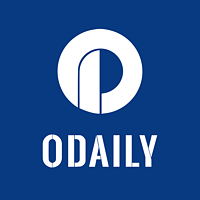
5 months ago
Decentralized Physical Infrastructure Networks: A New Paradigm in Blockchain
In the rapidly evolving landscape of blockchain technology, the concept of Decentralized Physical Infrastructure Networks (DePIN) is gaining significant traction. DePIN represents a transformative approach to network architecture, facilitating innovation across various sectors, including storage, computing, and artificial intelligence. By leveraging token incentive mechanisms, DePIN encourages users to contribute resources, thus enhancing network efficiency and lowering barriers to entry. Recent developments in this space have seen the emergence of projects like Filecoin, Helium, Shadow Token, and Aethir, which not only showcase innovative applications but also serve as compelling case studies for the practical implementation of decentralized networks.
DePIN encompasses a broad spectrum of services, categorized into physical basic networks and digital resource networks. This framework allows for the aggregation of resources, enabling providers with underutilized assets to rent them out, thereby maximizing efficiency. The decentralized nature of DePIN mitigates concerns associated with centralized entities, such as downtime and resource scarcity. As demand fluctuates, the network can dynamically scale its resources, ensuring optimal performance without the need for significant infrastructure changes. This flexibility is crucial in today's fast-paced digital environment, where resource demands can shift rapidly.
Among the notable projects in the DePIN ecosystem, Filecoin stands out as a leader in decentralized storage, while Helium has pioneered a decentralized wireless infrastructure. Shadow Token aims to disrupt traditional cloud storage models, and Aethir is emerging as a competitor in decentralized computing. Each of these projects not only illustrates the potential of DePIN but also highlights the shift towards a more democratized infrastructure model, where individuals collectively invest resources to build and maintain facilities. As the DePIN sector continues to grow, it promises to reshape the way we think about resource allocation and network management in the blockchain era.

5 months ago
Helium (HNT) Surges 10% Amid Rising Investor Interest and Key Resistance Levels
Helium (HNT) has recently captured market attention with a notable price surge of approximately 10% over the last 24 hours. This bullish momentum is further highlighted by a 12% increase in trading volume, indicating a significant uptick in investor interest. As the token approaches a critical resistance level at $9.5, market participants are keenly observing whether this rally can sustain its strength or if it will face a pullback. A successful breakout above this resistance could potentially lead Helium towards the psychological milestone of $10, while failure to breach this level may result in a downward correction.
The daily chart for Helium shows a clear uptrend, supported by an ascending trendline that traces back to recent lows around $2.8. Currently, the price is nearing the $8.2 support level, which previously acted as resistance in an ascending triangle pattern. Additionally, data from Coinglass reveals a liquidation pool of 56.70K at the $8.3648 price level, indicating rising risks among over-leveraged traders. This scenario, coupled with increasing Open Interest (OI) trends, reflects growing confidence in Helium's price action, suggesting that traders are optimistic about the token's future performance.
Broader market conditions have also been favorable, with Bitcoin's steady price providing a supportive backdrop for altcoins like Helium. As the token nears the pivotal $9.5 resistance level, it will require substantial buying pressure from bulls to maintain the uptrend. The market's reaction at this critical juncture will be crucial; a breakout could trigger a swift rally towards $10, while a rejection might push the price back to the support zone between $7.8 and $8. Overall, the current indicators suggest a potential bullish trend, but market participants remain cautious as they await further developments.

5 months ago
Helium Mobile: Price Surge and Future Predictions
In recent weeks, Helium Mobile has seen a remarkable price increase of nearly 125%, reaching $0.0022 on December 1st. However, in the last 24 hours, the token has experienced a slight decline of approximately 1.5%, bringing its current trading price to $0.00134. Helium Mobile, which launched in December 2023, is a decentralized mobile network service that integrates the Helium Network's peer-to-peer infrastructure with the Solana blockchain and partners with T-Mobile for 5G connectivity. The token serves as the network's built-in cryptocurrency, incentivizing users to deploy personal 5G hotspots that enhance the network's infrastructure.
The primary function of Helium Mobile's token is to reward users who contribute to the network by setting up hotspots, which act as localized cell towers. Participants earn MOBILE tokens that can be used within the Helium ecosystem or traded externally. The token supports various applications, including decentralized connectivity solutions for IoT devices, package tracking, drone navigation, and lost pet recovery. As more users join the network, its strength and community-driven nature grow, fostering a robust decentralized mobile infrastructure.
Looking ahead, analysts have varying predictions for Helium Mobile's price trajectory. CoinCodex suggests a potential surge of over 236%, with the token possibly reaching $0.004574 by January 2025. DigitalCoinPrice anticipates that MOBILE could surpass its previous high, projecting a price range between $0.00287 and $0.00299 by the end of 2024. However, Wallet Investor offers a more conservative outlook, estimating a maximum price of $0.00183 by December's end. For 2025, predictions range from $0.000226 to $0.00356, while by 2030, estimates suggest MOBILE could trade between $0.003684 and $0.0123. Despite the optimistic outlook, potential investors should remain cautious, as the cryptocurrency market is inherently volatile.

5 months ago
Helium (HNT) Price Surges to New Nine-Month High Amid Bullish Sentiment
The Helium (HNT) token has recently experienced a significant price surge, recording an impressive 8.36% increase within a 24-hour period, reaching a new nine-month high. This upward momentum is accompanied by a trading volume of $59.31 million, reflecting a robust interest in the altcoin. Over the past week, HNT has surged by 35.17%, and a remarkable 42.76% over the last 30 days, indicating a strong bullish trend. Currently, Helium maintains its value above the $8.5 mark, with a Year-to-Date (YTD) return of 27.59%, positioning it at the 85th spot in the cryptocurrency market with a market capitalization of $1.503 billion.
Technical indicators suggest that the bullish sentiment surrounding HNT could continue, with price targets set at $9.510 and $11.070. The Relative Strength Index (RSI) is nearing the overbought territory, while the 50-day and 200-day Exponential Moving Averages (EMA) show a consistent uptrend. This technical analysis hints at a potential continuation of the bullish price action throughout the week. However, market volatility remains a concern, and traders are left wondering whether HNT can maintain this momentum and reach a new 52-week high or if a correction is on the horizon.
Looking ahead, if bullish sentiment prevails, HNT may retest its resistance level of $9.510. Conversely, should bearish trends emerge, the price could drop to its support level of $8.010, with further declines potentially reaching a low of $6.525. The all-time high for Helium stands at $55.22, recorded on November 13, 2021, raising questions about the long-term price prospects of the token. As traders and investors monitor these developments, the future of HNT remains a topic of keen interest in the cryptocurrency community.
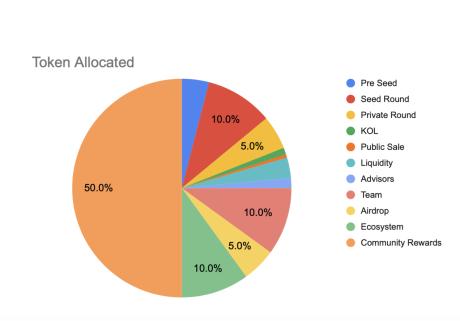
5 months ago
Network3: Revolutionizing Edge AI Infrastructure
Network3: Revolutionizing Edge AI Infrastructure
On November 26, CZ(Binance founder) tweeted, 'I am not against memes, but meme coins are getting 'a little' weird now. Let's build real applications using blockchain.' The market's obsession with meme coins has overshadowed utility-driven blockchain projects like Network3, a decentralized Edge AI infrastructure project poised for significant growth.
Network3 integrates blockchain tokenomics, decentralized physical infrastructure networks (DePIN), federated learning, and Edge AI to challenge big tech's AI monopoly. With over 543,010 nodes across 185 countries, Network3's decentralized federated learning framework ensures privacy and data security while incentivizing node participation. The project's rapid growth, surpassing Helium in node count, signifies its potential to democratize computing power and data.
Market Potential and Tokenomics
The DePIN and Edge AI combination presents a trillion-dollar opportunity. DePIN incentivizes users to contribute physical resources, projecting a market size of $3.5 trillion by 2028. Currently undervalued at $1.33 billion, the DePIN sector is poised for exponential growth. Edge AI, with a projected market size of $269.82 billion by 2032, excels in data privacy and efficiency, attracting tech giants like NVIDIA and Google. Network3's tokenomics model, with a total token supply of 1 billion, ensures sustainable mining rewards through staking and mining.
Investing in Network3
Investing in Network3 offers a gateway to the future of AI infrastructure, combining DePIN's physical world integration and Edge AI's decentralized computing power. With a clear economic model and exponential market potential, Network3 stands out as a pioneer in revolutionizing the AI sector.
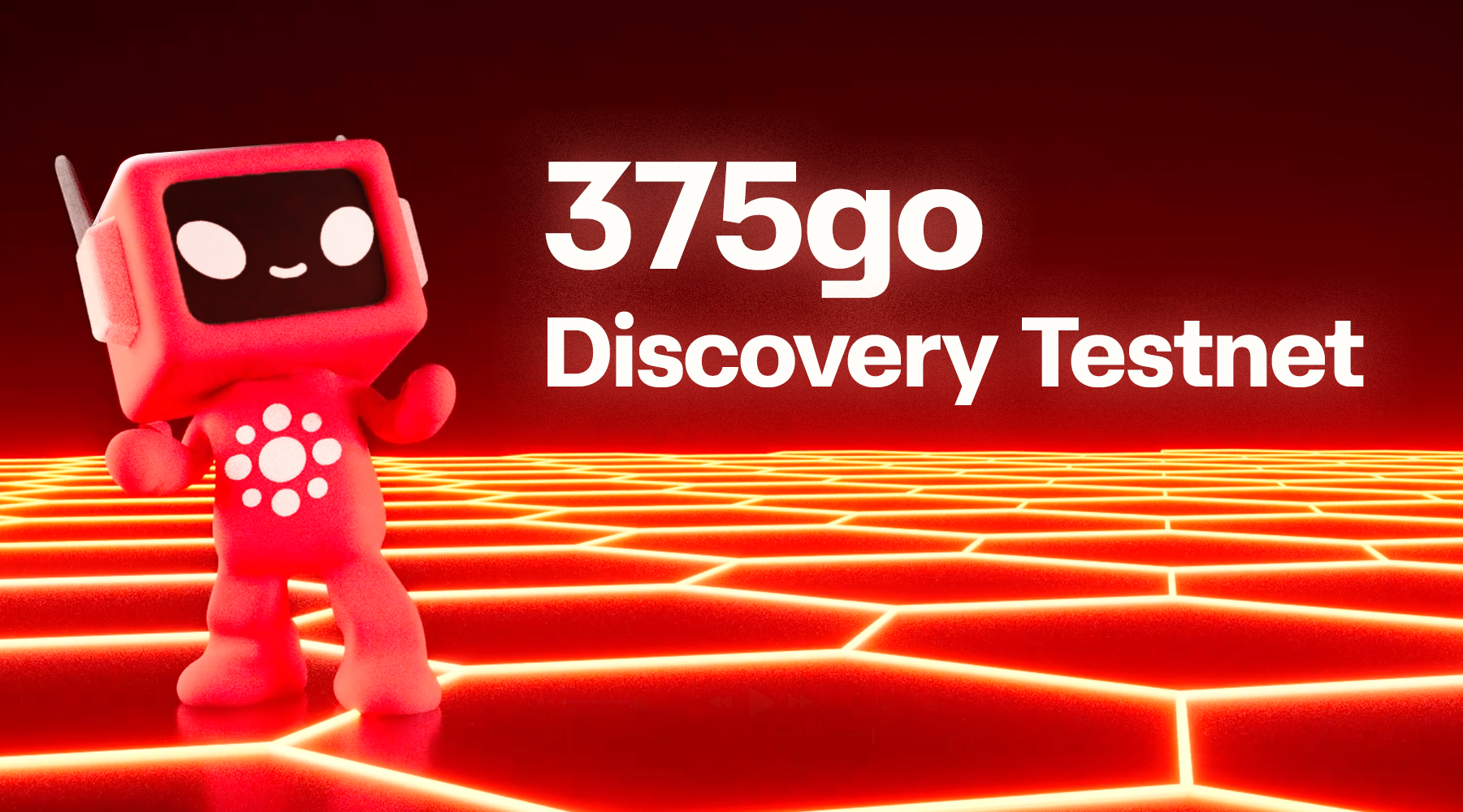
5 months ago
Edge AI Revolutionizing Data Processing at the Edge
375ai Revolutionizing Data Processing at the Edge
As the world becomes increasingly interconnected through millions of smart devices, the demand for rapid data processing at the edge—right where the data is generated—is greater than ever. Edge AI enables intelligence where data is generated, on highways, bustling streets, in hospitals, and retail stores. It operates at the network's edge, making sense of the unstructured, real-time data that represents our world. 375ai has been at the forefront of Edge AI innovation, leveraging cutting edge proprietary hardware and strategic partnerships to pioneer the world’s first decentralized edge data intelligence network. After years of development, we’re thrilled to announce the launch of the 375go Discovery Testnet.
Why Edge AI and Why Now?
Edge AI deploys artificial intelligence on devices throughout the physical world, bypassing the need for centralized cloud processing. Recent advancements in AI, Internet of Things (IoT) devices, and computing infrastructure make edge AI not just possible but essential. The benefits include: Real-time Decision-Making, Increased Privacy, Reduced Costs, Adaptability, and Resilience. The explosive growth of IoT devices has resulted in a deluge of data—from a wide variety of sensors to mobile phones and traffic cameras. Instead of sending all this data back to centralized servers for analysis, edge AI makes it possible to process and act on that data locally. This results in lower costs, faster response times, enhanced privacy, and even autonomy in the absence of internet connectivity.
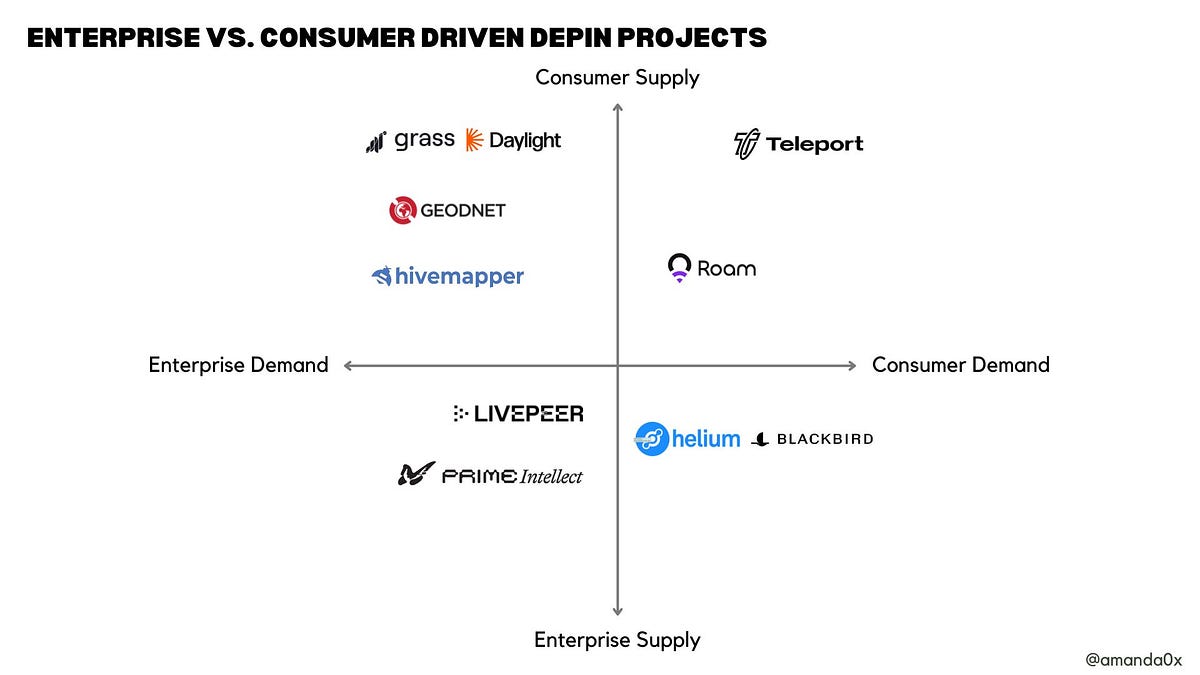
5 months ago
The Rise of Decentralized Physical Infrastructure Networks and Consumer Engagement
In 2013, Helium was founded to create a wireless infrastructure that could support the rapidly growing Internet of Things (IoT) industry. By 2018, the company pivoted towards a decentralized wireless network model, allowing devices worldwide to connect to the Internet without relying on traditional, power-hungry satellite systems or costly cellular plans. Utilizing token incentives, Helium's network expanded rapidly, boasting over 375,000 hotspots and establishing itself as the largest long-range wide-area network (LoRaWAN) and the fastest-growing cellular network. This innovative approach has inspired over 1,400 Decentralized Physical Infrastructure (DePIN) projects, collectively valued at over $53 billion, demonstrating the potential of blockchain technology to create real-world value through decentralized systems.
Consumers play a crucial role in the DePIN ecosystem, acting as the supply backbone for various networks in exchange for token rewards. These networks can be categorized into physical resource networks, which incentivize consumers to contribute to real-world infrastructure, and digital resource networks, where consumers help build virtual infrastructure. For instance, decentralized energy networks rely on consumers to connect distributed energy resources like solar panels, while decentralized mapping projects leverage consumer-grade hardware to gather location data. Additionally, consumers can contribute their computing power and bandwidth to decentralized compute platforms, enhancing the capabilities of AI and machine learning applications.
As DePIN projects evolve, they are increasingly generating revenue and attracting consumer demand. By tapping into consumer marketplaces and offering direct-to-consumer products, these projects can streamline customer acquisition and enhance user engagement. The DePIN model not only incentivizes new consumer behaviors but also accelerates the adoption of existing ones, particularly in the energy sector. As these networks grow, they unlock new applications and services, creating a flywheel effect that attracts developers and increases consumer adoption. Overall, the intersection of consumers and DePIN is paving the way for innovative solutions and a more decentralized future.
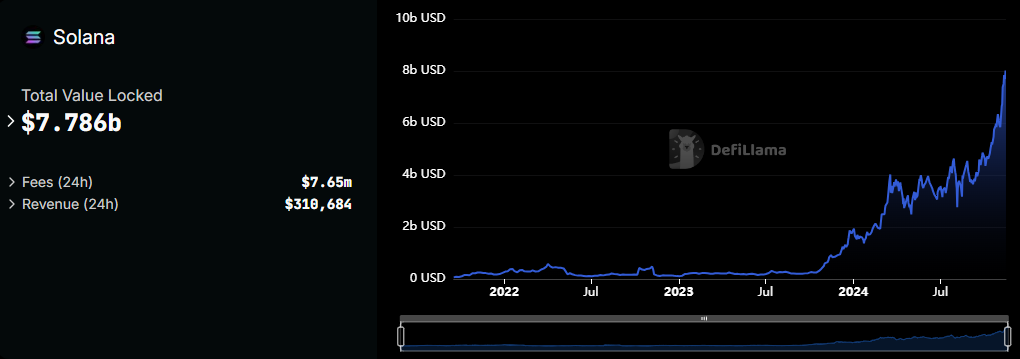
6 months ago
Solana Surges to 111% of Ethereum's Economic Value Amid DeFi Growth
In October, Solana's real economic value (REV) reached an impressive 111% of Ethereum's, driven by significant growth in decentralized finance (DeFi) and innovative projects such as Hivemapper and Helium. The price of Solana (SOL) surged by 36% recently, hitting $213, but it now faces a crucial challenge at the $221 resistance level. Despite strong network activity and a notable increase in staking, concerns linger about the sustainability of this momentum. The decentralized exchange (DEX) volumes have also seen a remarkable rise, with daily trading exceeding $5 billion for three consecutive days last week, totaling $16 billion from November 10 to 15, primarily driven by Raydium and Orca.
Staking activity has emerged as a key factor in bolstering investor confidence, with over $8 billion worth of SOL staked, which helps alleviate selling pressure and enhances price stability. This represents one of Solana's strongest metrics during its current rally. Technical indicators support a positive outlook, as the average directional index (ADX) for SOL stands at 32, indicating a strong trend. However, the inability to breach the $221 barrier could result in a price range between $201 and $221 in the short term, with potential pullbacks signaling a reversal of the bullish trend.
Solana's DeFi ecosystem continues to thrive, with meme coin trading contributing to a daily volume of $1 billion, showcasing its growing appeal among retail traders. The network's impact extends beyond DeFi, with projects like Hivemapper mapping a significant portion of global roads and Helium expanding its device network. With robust staking, increasing transaction volumes, and strong technical indicators, Solana is poised for further growth. However, breaking the $221 resistance is critical for unlocking greater potential, with medium-term targets projected between $400 and $500, supported by a bullish cup-and-handle formation on its chart.

6 months ago
The Impact of Upbit Listing Success Rate and UDC Conference Overview
The Impact of Upbit Listing Success Rate and UDC Conference Overview
Recently, with the market gaining strength, the wealth effect of new listings on Upbit has become more prominent. Tokens like AGLD saw a staggering 150% increase on the first day, while DRIFT surged by 190%. Tokens like SAFE, CARV, and PEPE also experienced a 100% increase. The Formula team made a fortune through news trading, showcasing the potential for wealth creation on Upbit. How can we seize the wealth wave of new listings on Upbit? The UDC conference serves as a barometer for Upbit listings. The listing success rate from 2018 to 2023 stands at 76%. On November 14th, the UDC conference was held as scheduled, offering a glimpse into the participating projects. UDC, organized by Dunamu since 2018, is a representative blockchain conference in South Korea aimed at promoting industry development, ecosystem growth, and adoption. This year's theme, 'Blockchain: Driving Real-World Change,' delves into how blockchain is expanding into various industries and bringing about real-world transformations. According to Layerggofficial data, from 2018 to 2023, approximately 66 projects participated in UDC, with 37 projects already listed on KRW Fair before UDC. Among the remaining 29 projects, 13 were listed in KRW form after UDC (44.8%). The significance of the UDC conference and the wealth effect on Upbit stem from various factors.
UDC's Importance and Upbit's Wealth Effect
Upbit, as South Korea's largest exchange, holds a leading position in the Korean market in terms of trading volume and user numbers, commanding around 73% of the market share. Korean investors can directly purchase cryptocurrencies using the Korean Won (KRW), leading to significant wealth effects. The convenience of deposits and substantial wealth effects have propelled cryptocurrency trading volume in Korea beyond the country's stock market. This dynamic ensures strong buying interest for new tokens listed on Upbit. The UDC conference, organized by Dunamo, Upbit's parent company, though slightly smaller in terms of timing and participation compared to events like KBW, holds undeniable importance. Projects like ZRO, MNT, and STG, which participated in last year's conference, were listed on Upbit this year, indicating the enduring influence of the conference. Data source: [Layerggofficial](https://x.com/layerggofficial/status/1714145904943587774?s=46)
UDC 2024 Conference Projects
The UDC conference for this year has already taken place, with projects like Axelar, Taiko, Zetachain, Mantle, and Cyber already listed on Upbit. As of the conference, there are still 11 projects yet to be listed on Upbit or to have KRW trading pairs. Projects awaiting listing include SLP, HNT, GALA, NFT, and ROSE. Projects already listed with BTC pairs but without KRW pairs include MKR, YGG, IOTX, and Cyber. Projects that have not launched tokens but participated in UDC include Linea and Magic Eden. Compliance and AI remain strong narratives in line with this year's UDC theme. Despite Oasis Network not participating in this year's UDC, leveraging AI narratives, ROSE saw a surge on November 5th. Additionally, South Korea's high interest in NFTs and the gaming market suggests that Magic Eden's token has a high probability of being listed on Upbit. Apart from the forward-looking impact of the UDC conference, another South Korean exchange, Bithumb, also has relevance to Upbit listings. Both exchanges tend to list coins in clusters based on narratives, such as introducing AI tokens simultaneously at the beginning of the year or focusing on Memecoins currently. To protect investors, Korean exchanges typically avoid small, new coins with short market history, opting for older coins with stable market capitalization and prices.
Signup for latest DePIN news and updates